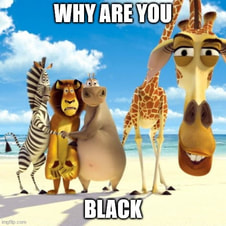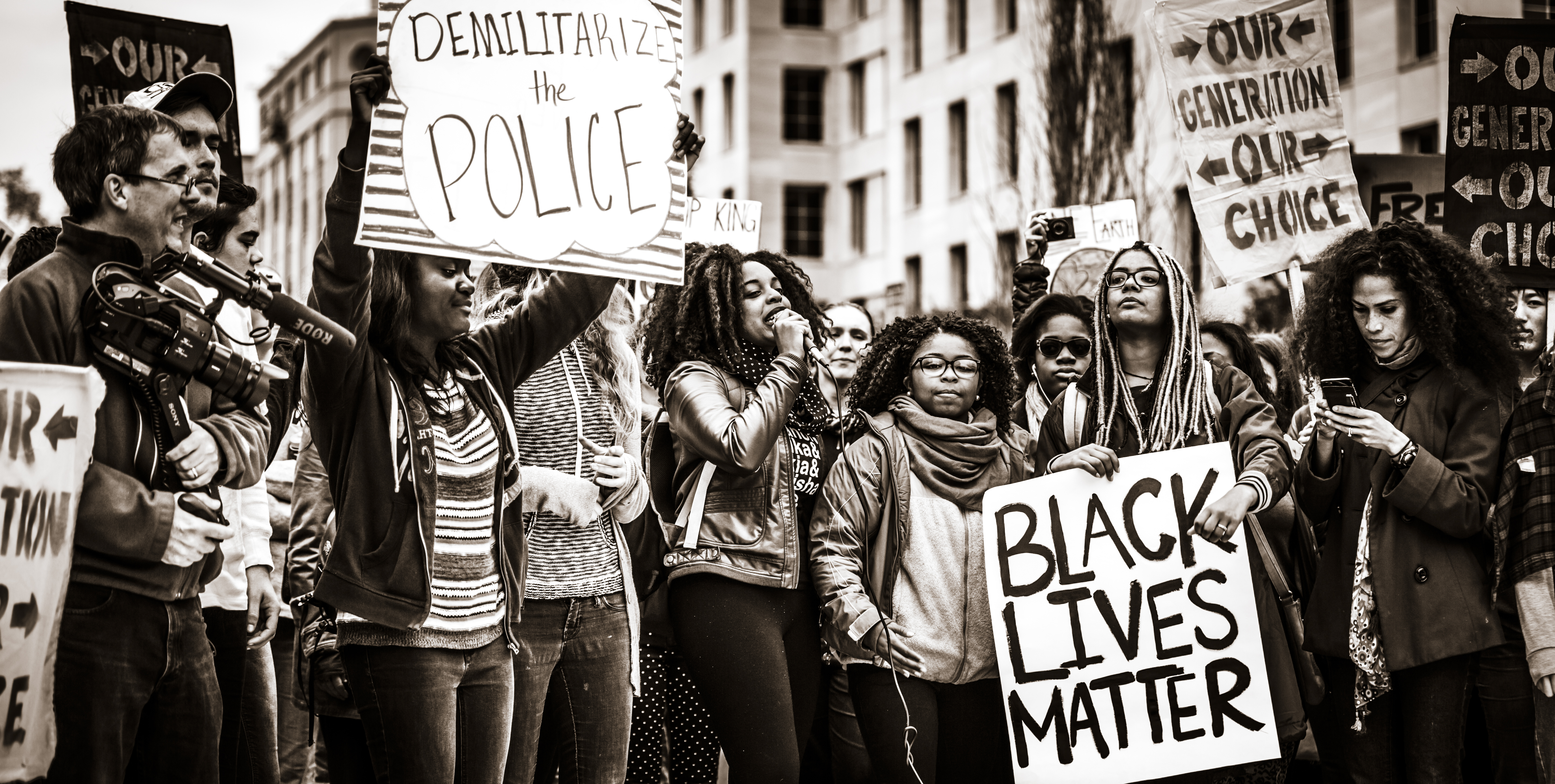|
by Dominick Marconi  There was this popular meme that recirculated in 2020 which featured a still frame from the Dreamworks animated film Madagascar. It showed the four main characters, Alex the Lion, Gloria the Hippo, Marty the Zebra, and Melman the Giraffe with puzzled expressions on their faces and overlaid text that read, simply: “Why are you black?” Everytime I see it I laugh. Everytime I think about it I laugh. I cannot speak as to why anybody else might find it funny, but to me, the comedy not only stems from the absurdity of the question's nature, but in its truth. That meme was created in homage to a real interaction that occurred on 4chan. 4chan, for the uninitiated, is an online image board where a cavalcade of concerning content is conceived. The legacy of the site is one that is as confusing as it is infamous. Controversial incidents associated with posts on 4chan include Gamergate, celebrity photo leaks, criminal cyberbullying cases, abuse of people, animals, etc. A report of Jeffery Epstein’s death was apparently on there 40 minutes before ABC broke the story, and it is widely recognized as being the origin of modern “meme culture.” When linked there by a friend, I’ve personally only seen things horrifying, hilarious, or both. In this case, it was both in a big way. Both in such a way, I need to tell somebody about it. Here’s how it went down: One dude was just talking about some video games he had owned and included a picture. In the picture you can see his arm and hand. In the very next message on the thread someone asks the all-important question: “Why are you Black?” I feel like part of what makes it so funny is the insinuation that the poster, for some reason, should not have been Black. This immediately takes my mind to the scene from Mean Girls. You know the one. When the dumb one, in response to the main girl saying she recently came from Africa asks: “Why are you white?” Which was hilarious. But it’s funny for a completely different reason. We can, as an audience, see the pieces the character may have ignorantly put together to come to that conclusion. But with the 4chan chat thread, there was no such obvious indication. America is predominately white yes, but Black people are far from an anomalous encounter. I can imagine this whole thread was a joke, but the entire reason I bring it up is the same reason I find the meme hilarious. Black existence is notable, questionable, and requires justification. Not only in real life, but even in fictional contexts. Seemingly as a rejection of the “woke movement” of the latter half of the 2010s, almost every time some media conglomerate drops a superhero who is a brown girl or a fictional athletic coach who is a trans person, what follows, without fail, is a cavalry of people ready to complain about it. People scream propaganda and ask “Why are they brown?” or “Why are they trans?” They demand a justification for something to not be completely absent from a fictional world that isn’t even of their own creation.
It begs the question: Why not? Only the most rational of these dissenters would say: “because it's a facade set forth by large companies to piggyback on recent cultural norm shifts at the expense and objectification of real people.” To those people, I say, yes you make a solid point but undervalue the importance of representation in progression. Consider the status quo. If these huge production companies just continue to pretend these people don’t exist, and make all of their stories about the same two white people, we’ll stay the same distance away from true, quality representation. By railing against the industry for highlighting new perspectives, you discourage everybody from including them at all. You’re shrinking the window through which any marginalized voices can squeeze through to get any sort of representation. They’ll simply continue to be left out of the conversation entirely. However, this is not the answer I typically encounter when the question of “Why not?” is posed. It's usually something to the effect of “The character’s sexuality doesn’t impact the narrative,” or “There weren’t any women fighting in World War I,” (something commonly said when the cover art for Battlefield V was released) or something about as brain dead as that. These days it seems as though, in order for someone who exists in real life without justification, they must have SOME grand purpose for existing in a work of fiction. I can understand having an issue with a character being poorly written. A common issue occurs when a marginalized character is written stereotypically. This is cast aside as poor writing, but that too is a cop out. Regardless of whether the producer or the consumer is at fault, the current direction of this sort of media perpetuated tension is its effect on those caught in between. If an argument about tokenism sprouts everytime someone who looks like me gets on stage, it reinforces another barrier I have to enjoying the minor victory I may have gotten. And sometimes I feel like that’s the point. What’s more is that now, as much as always, whether I like it or not, it feels like my existence is a political statement 24/7, and I can never turn it off. But the problem of my existence becoming a political statement isn’t with my personal relationships. The problem is with stranger’s relationships with who they think I am. I stand for what I stand for, and I am who I am. Even so, I will always be helpless to influence the perceptions of those around me. They will always presume something, and that presumption often makes the difference between a peaceful day and a stressful one. I can only recognize that as a walking, reluctant statement my head should stay on a swivel. And as participants in a great conversation about civil rights justice, it’s important to help each other strive toward basic tolerance.
0 Comments
Leave a Reply. |
Archives
July 2024
Categories
All
|
|
Glassworks is a publication of Rowan University's Master of Arts in Writing 260 Victoria Street • Glassboro, New Jersey 08028 [email protected] |
All Content on this Site (c) 2024 Glassworks
|


 RSS Feed
RSS Feed
